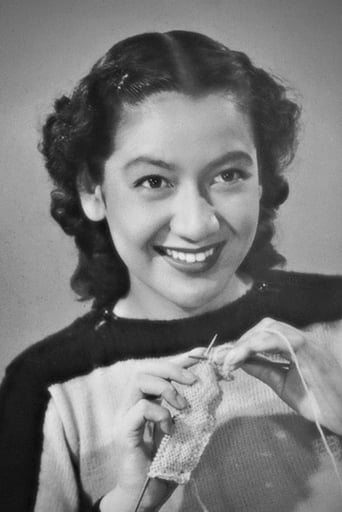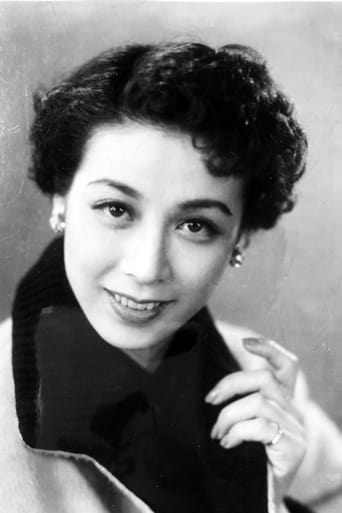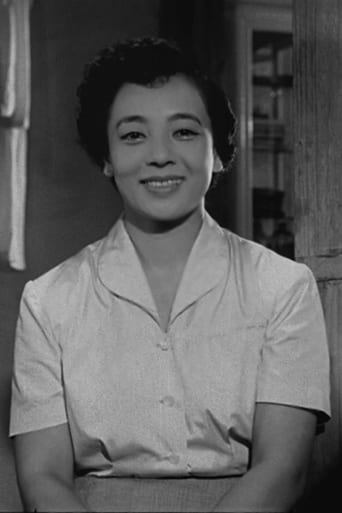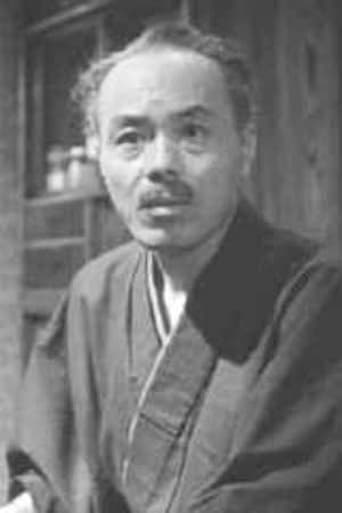Stevecorp
Don't listen to the negative reviews
Afouotos
Although it has its amusing moments, in eneral the plot does not convince.
Curapedi
I cannot think of one single thing that I would change about this film. The acting is incomparable, the directing deft, and the writing poignantly brilliant.
Deanna
There are moments in this movie where the great movie it could've been peek out... They're fleeting, here, but they're worth savoring, and they happen often enough to make it worth your while.
Harry T. Yung
After "Tokyo Story", the undebated Ozu Yasujiro top favorite, if his devotees are to name a few others, "Early Summer" would almost certainly make the short list. With as many as 19 characters in total and generously endowed with light humour, it is among the most accessible of Ozu's work. And yet, beyond the easily identified Ozu hallmark of family story, there is another layer which the auteur himself intimated as "deep matters as reincarnation and mutability". That is why, he added, "this film was one of the most demanding work I've done in years".I am not going to pretend to be able to talk intelligently about the deeper aspect and would rather dwell on the more earthy level, Ozu's consistent endeavor to depict post-war Japan, under ever increasing Western influence which often challenges Japan's traditional value of placing the family ahead of everything and anything else. One manifestation is a woman's free choice in marriage.The plot is simplicity crystalized, surrounding the daily lives of a suburban family of three generations: elderly grandparents, middle-class (medical doctor) couple, two young boys, plus the doctor's 28-year-old sister Noriko. Unlike many contemporary western films of dysfunctional families, this family is nowhere near being so. Still, there are tension and pressure. One aspect that Ozu has taken some pains to bring across to the audience is that the little guys are spoil rotten, with a totally indulgent grandfather and not-too-inclined-to-discipline father.More central is the theme of a woman past the ripe age for marrying. While the family members are all concerned, Noriko is unperturbed, "I can easily get married any time I wish. It's just that I don't want to get married at the moment". Not bragging: she has good looks, charming personality and graceful intelligence. By the way it would be relevant to mention here that the relationship between the sisters-in-laws is heartwarmingly affectionate. There is one scene by the seaside towards the end of the film that many critics love to cite: Fumiko (the doctor's wife and the unruly kids' mother) asking, in caring concern, if Noriko is sure about her decision. When Noriko reassures her that she is, the two women stroll on the beach together, shoes in hand, in a languidly composed scene that radiates warmth and affection. Also must be mentioned is one other character that never appears in person, the elderly couple's second son who died in war.While there are subplots such as an ageing grand-uncle's visit and the girls' alumni divided into two opposing groups, the married and unmarried, the main storyline (duly noting that Ozu's emphasis that this film is not so much about story as about ideas) is Noriko marriage. Her matchmaking enthusiast of a boss suggests a very eligible fortyish friend and her entire family beam with the prospect. The final outcome comes as a surprise, certainly to the family, and perhaps even a little to Noriko herself. A neighbor and childhood friend to the brothers and sister, Kenkichi, is now is also a medical man, as well as the surviving brother's colleague. But he has been a closer friend to the deceased brother, and had actually received a letter from the battlefield with a bunch of ears of grain included in the envelope, he intimated to Noriko. When Kenkicki receives a promotion that will take him away for three years, he convinces his reluctant mother to go with him. In a farewell visit in her house, Kenkicki's mother yields to a spontaneous impulse to tell Noriko how she wished that the latter could be married to her widower son. With a similarly spontaneous impulse, Noriko says yes, which brings uncontrollable tears of happiness to the mother's eyes. But this is not just impulse on Noriko's part. Perhaps she has been treating Kenkicki like a brother, but in the depth of her heart, she knows that this man whom she has known since childhood will give her the sense of security she needs from someone she is going to spend the rest of her life with. Happiness she can count on in a life with Kenkicki, even if perhaps not ecstasy.This is essentially what "happens" in the film. As mentioned, I wouldn't pretend to have grasped the subtleties of this film. One a more worldly level, in addition to disappointment with the less-than-desirable marriage (Kenkicki, although a professional, is a far cry from being affluent; he also has a young daughter from the deceased first wife), the family, especially the elderly couple, lament the breakup of the family, inevitable as it is. On the metaphysical plane, viewers would have different private connections and empathies with the rich arrays of motifs and symbols: a rising balloon finally reduced to a tiny dot, ears of wheat populating the entire screen, railroad crossing gate coming down just a grandfather is about to cross, the kids' obsession with toy train sets, and so on. Of particular significance is the second son who died in the battlefield. While never appearing on screen, this character has a pivotal role, perhaps even instrumental to bringing about the key plot element, the marriage of Noriko and Kenkicki.
kurosawakira
What a way to start a film! The ebb and flow of things, of family, of expectation. It all comes together later: the aviary, the balloon in the sky, the final photograph, the wedding party crossing the field (reminiscent of Vigo's "L'Atalante" [1934]). There's the unfathomable sense of loss, of belonging. Change in the smallest of things. The swift cuts from the beach to the house via the aviary and the two interior shots have such potency that they're quickly becoming my iconic Ozu moments.Here the camera moves more than it does in "Banshun" (1949) or "Tôkyô monogatari" (1953), not to mention his later work. The minutiae of the movement is scintillating, the timing and graceful effect the shots have, electrifying and intensifying the film greatly. They're not self-conscious as you might think considering they're surrounded by such an ocean of repose.And there's always a performance in the middle of it. This time it's a kabuki play. Ryû Chishû is sublime in this as the cranky brother, perhaps his best role.This has been released on Blu-ray (Region B) by the British Film Institute as part of their huge undertaking to release over thirty of Ozu's films on either Blu-ray or DVD. It's a wonderful transfer, a treasure to behold.
federovsky
The first few minutes of the film consist of people giving each other little commands, smothering each other in goo-like bourgeois conformity, and it never lets up. This is basically "Late Spring" except that Setsuko Hara's character is two years older, and a touch more independent – she actually dares to break with convention at the end, and that would seem to be the only justification this film at all, as elements from the earlier film are repeated unashamedly – on a train, at the temple, at the theatre, by the sea – even women sitting down to a plate of cake. It's the same actors doing the same things. What on earth was Ozu thinking? It doesn't take us forward, only detracts from the originality of what has gone before.Having lost that essential originality, what follows is suddenly irksome: characters moving in slow motion, like a tai chi exercise, are annoying; nobody is able to see beyond the immediate confines of their house and their job; people obsess and gossip about everyone else because their own lives are terminally dull. Get a life, people! Unlike "Late Spring", which was basically a two-hander, here a whole family is involved, including a detestable, abusive child who really needs a sound thrashing. There's some cute interplay between the girlfriends, but Hara is allowed no mood change, and only simpers constantly. And whereas "Late Spring" reached a satisfying conclusion, this one peters out in a kind of weary resignation such that you fully expect the characters are destined for meaningless oblivion. Such a shame – it's so well made. The placid approach, the serenity of it all, the gentle nostalgia and the melancholy sense of life passing is lovely, but is there really no other application than this?
brendastern
I had seen Tokyo Story and respected it. But Early Summer is a charming, poignant and very human movie that stands the test of time. It is the story of Noriko, a 28-year-old administrative assistant who is under pressure from her family to marry. To put this in perspective, in traditional Japan, a woman married by age 25, or she was considered a "Christmas cake "-- nobody wanted it after the 25th! It is not as common in Japan now for women to face such pressure, especially since so many Japanese women are choosing to stay single, now that they have the money to be independent. However, Noriko's case would have been common up until the current generation of women.While the war is not a character in the movie, there are threads that connect Early Summer to World War II. The movie takes place in 1951, just before Japan emerged from the U.S. occupation, and before Japanese society had its great explosion of wealth in the 1960s. It is a snapshot of a time that no longer exists, although the family conflicts are universal. I plan to add Early Summer to my list of top movies and look forward to viewing it again.





